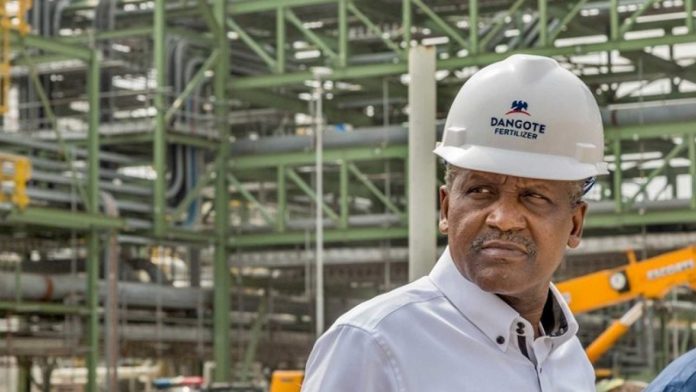A sustainable supply of crude oil to regional refineries under a system of prices set by the market is the goal of the Nigerian Federal Government and its crude oil producers.
According to both sides, the commitment’s goal is to guarantee that refineries don’t run out of feedstock while operators, or crude oil producers, do business as efficiently as possible.
As a result, oil refiners in the nation are required by the industry watchdog, the Nigeria Upstream Petroleum Regulatory Commission, to submit a monthly price quote for crude supplies.
This occurred at the same time that Bloomberg reported on Thursday that the $20 billion Dangote Petroleum Refinery is allegedly increasing the amount of crude it imports from the United States.
In a statement issued in Abuja on Thursday, Nigeria’s upstream regulator stated that oil producers under the umbrella of the Oil Producers Trade Section of the Lagos Chamber of Commerce and Industry, at a meeting called by NUPRC, agreed to concede to a framework that would be mutually beneficial with the aim of ensuring that local refineries are not strangulated due to off-the-curve prices.
“The focus of the meeting held at the instance of the Commission Chief Executive, Gbenga Komolafe, was on the status review of the Framework for Seamless Operationalization of Domestic Crude Oil Supply Obligation Template.
“It was part of efforts to effectively implement key sections of the Petroleum Industry Act (PIA) 2021, especially the issue of pricing and crude supply to the domestic refineries,” the commission stated.
In the statement, Komolafe said President Bola Tinubu is fully committed to providing a level playing field for producers and refiners to do business in the industry.
He expressed the need for a rule of engagement to ensure that the pricing model from the oil producers does not hinder the domestic refineries.
He directed producers and refiners to provide the NUPRC with cargo price quotes on crude supply and delivery for effective monitoring and regulation of transactions among parties. “We need to have the price quotes monthly,” he directed.
The NUPRC boss pointed out a convergence between the Domestic Crude Oil Supply Obligation and the nation’s energy security, indicating that his team is re-engineering its regulatory processes to address the challenges.
“We allow all our processes to be transparent. While the Federal Government targets the implementation of the regulation, all parties must submit to the rules of engagement as a guide for operation,” Komolafe stated.
He said NUPRC is committed to driving the willing buyer/willing seller provision.
“We have to discuss pricing, especially as parties have committed to respecting their domestic crude oil obligation. As the regulator, we don’t want the upstream sector to be operated sub-optimally through cost under-recovery.
“So, the regulator is very alive to that. In crude pricing, we will never allow price strangulation to disincentivize our domestic refining capacity optimisation. The regulator does not support cost under-recovery in the upstream sector, and we will continue to work to ensure that crude supply profiteering as a negative factor that can strangulate our domestic refining capacity optimisation is disallowed,” Komolafe declared.













